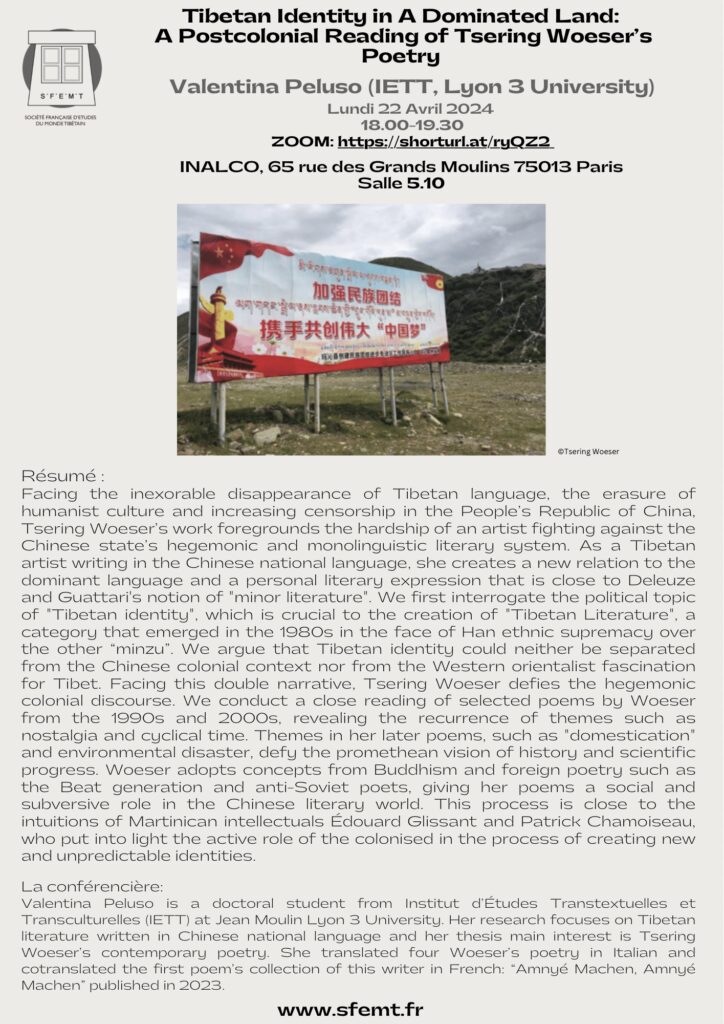La SFEMT a le plaisir d’annoncer la tenue, dans le cadre du Cycle de Conférences SFEMT 2023/2024, de la conférence suivante :
Tibetan Identity in A Dominated Land: A Postcolonial Reading of Tsering Woeser’s Poetry
par Valentina Peluso
le lundi 22 avril 2024 à 18h00 dans la salle 5.10 à l’INALCO (65, rue des Grands Moulins 75013 Paris) et via Zoom (https://shorturl.at/ryQZ2)
Résumé :
Facing the inexorable disappearance of Tibetan language, the erasure of humanist culture and increasing censorship in the People’s Republic of China, Tsering Woeser’s work foregrounds the hardship of an artist fighting against the Chinese state’s hegemonic and monolinguistic literary system. As a Tibetan artist writing in the Chinese national language, she creates a new relation to the dominant language and a personal literary expression that is close to Deleuze and Guattari’s notion of “minor literature”.
We first interrogate the political topic of “Tibetan identity”, which is crucial to the creation of “Tibetan Literature”, a category that emerged in the 1980s in the face of Han ethnic supremacy over the other minzu. We argue that Tibetan identity could neither be separated from the Chinese colonial context nor from the Western orientalist fascination for Tibet. Facing this double narrative, Tsering Woeser defies the hegemonic colonial discourse.
We conduct a close reading of selected poems by Woeser from the 1990s and 2000s, revealing the recurrence of themes such as nostalgia and cyclical time. Themes in her later poems, such as “domestication” and environmental disaster, defy the promethean vision of history and scientific progress. Woeser adopts concepts from Buddhism and foreign poetry such as the Beat generation and anti-Soviet poets, giving her poems a social and subversive role in the Chinese literary world. This process is close to the intuitions of Martinican intellectuals Édouard Glissant and Patrick Chamoiseau that put into light the active role of the colonised in the process of creating new and unpredictable identities.

